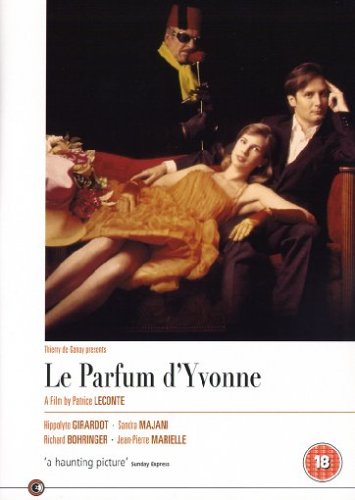In my late teens I was fascinated by French sensuality. I loved The Story of O, I watched my first Emmanuelle
film and I devoured my mother-in-law’s copies of Marie Claire magazine. Flipping through its pages it seemed the women
were so sophisticated, effortlessly stylish and self-assured. I kept an image scrapbook cut from its pages
and tried to emulate the models, yet somehow I never managed to acquire their
impeccable style.
I was recently reminded of this when I watched a film by Patrice Leconte, whose work I enjoy, called Le Parfum d’Yvonne (1994). Observing the main character of Yvonne,
played by Sandra Majani, looking simultaneously sexy and innocent in a simple
white dress and pearl earrings, her cool blonde hair tied back with a chiffon
scarf, I wonder why the French are so successful at portraying such understated
sensuality. The film is slow, enigmatic,
intriguing, with a delicate eroticism that is such a contrast to the explicit,
faster–paced way in which I generally write.
I wonder if my tastes have changed over the years? Do I write the way I do because I am so used
to working to the requirements of publisher briefs? Would I have done so anyway? Or have I got so used to writing explicitly
that it is now automatic?
Exquisite as it was, the story didn’t turn me. I found the character of Yvonne oddly passive and accepting, allowing events to happen rather than actively taking control. I like spiky, passionate, strong heroines (although this would have completely changed the nature of the film).
I appreciated the film, which I imagine would be termed arthouse, and the way it explored the nature of love and memory and ageing, although
I preferred Leconte’s beautiful earlier The Hairdresser’s Husband (1990), which
deals with similar themes, and also the haunting Monsieur Hire (1989).
But despite the sometimes impassive and rather shallow
characters, this style of French cinema is able to evoke an age of beauty,
taste and the kind of carefree existence (mostly) that the majority of us will
never experience, providing intelligent escapism to luxuriate in for 86
minutes, and to ponder on afterwards.
If you are also a fan of the work of Patrice Leconte, I
would love to know what you think.

No comments:
Post a Comment